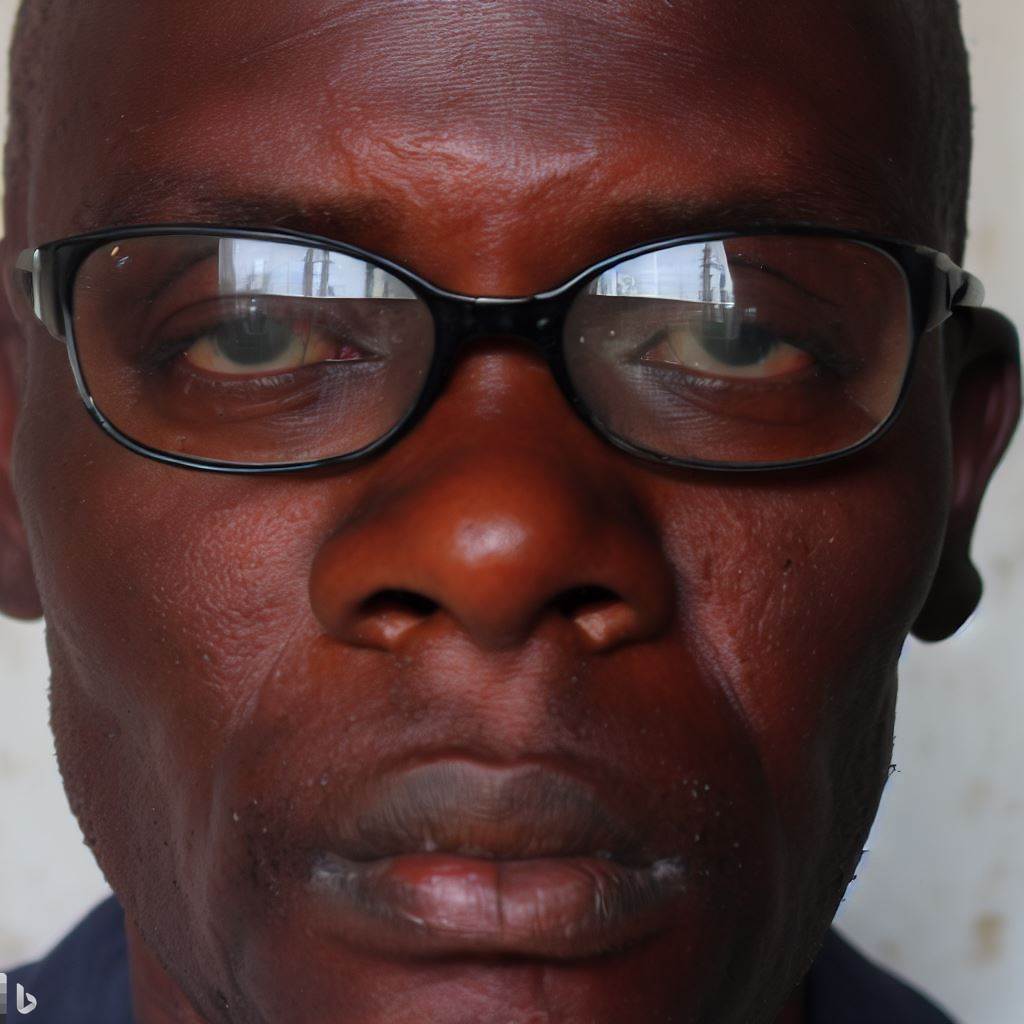Introduction
Public perception plays a crucial role in shaping the success and effectiveness of any profession, including optometry.
It influences how people perceive and interact with optometrists, impacting their trust, acceptance, and utilization of the services provided.
Understanding the public perception of the optometry profession in Nigeria is vital to address any misconceptions, improve trust, and enhance the overall quality of eye care services.
In Nigeria, where eye health is a significant concern, understanding public perception of optometry is even more critical.
This blog post aims to delve into the specific public perception of the optometry profession within the country.
By exploring and analyzing the beliefs, attitudes, and opinions held by the Nigerian public towards optometrists, we can gain insights into the challenges and opportunities that exist.
The blog post will further discuss the factors that influence public perception of optometry in Nigeria, such as cultural beliefs, past experiences, and knowledge gaps.
It will also shed light on the role of optometrists in promoting eye health awareness, addressing common myths, and working towards a positive change in public perception.
In general, this discussion aims to emphasize the importance of public perception and to identify strategies that can be employed to improve the public’s understanding and appreciation of the optometry profession in Nigeria.
By addressing misconceptions and fostering a positive image, we can create a more supportive and informed environment for both optometrists and patients.
Overview of the Optometry Profession
Define optometry and its role in healthcare
Optometry is a branch of healthcare that focuses on diagnosing and treating eye-related conditions.
Optometrists are primary eye care providers who examine the eyes, prescribe corrective eyewear, and manage eye diseases.
They are trained to detect and manage various eye conditions, such as refractive errors, glaucoma, and cataracts.
Optometry plays a crucial role in promoting good eye health and preventing vision loss.
By conducting regular eye exams, optometrists can detect early signs of eye diseases and provide timely treatment.
The qualifications and training required to become an optometrist
To become an optometrist in Nigeria, one must complete a Bachelor’s degree in Optometry from a recognized university.
After obtaining the Bachelor’s degree, aspiring optometrists need to undergo a one-year internship program.
During the internship, they gain practical experience by working under the supervision of experienced optometrists.
Upon completion of the internship, optometrists must then pass the Optometry and Dispensing Opticians Board examination.
Only after successfully passing the examination can individuals practice as licensed optometrists in Nigeria.
The importance of optometrists in providing eye care services
Optometrists play a vital role in providing comprehensive eye care services to the Nigerian population.
They are equipped with the knowledge and expertise to detect and manage various eye conditions.
Through regular eye examinations, optometrists can identify refractive errors, prescribe appropriate corrective lenses, and improve visual acuity.
They also play a crucial role in diagnosing and managing eye diseases, such as glaucoma and diabetic retinopathy.
With their specialized training, optometrists can provide early intervention and prevent vision loss or irreversible damage to the eyes.
Additionally, optometrists educate patients about proper eye care practices, including the importance of wearing sunglasses and maintaining good hygiene.
Generally, optometrists contribute significantly to the well-being of individuals by ensuring optimal eye health and preventing vision-related complications.
Optometry is an essential profession in Nigeria’s healthcare system, focusing on eye care and vision health.
Optometrists play a key role in diagnosing and managing various eye conditions, promoting good eye health, and preventing vision loss.
Through their qualifications, training, and expertise, optometrists provide comprehensive eye care services to the Nigerian population.
By emphasizing the significance of regular eye examinations and proper eye care practices, optometrists help individuals maintain optimal vision and overall eye health.
It is crucial to recognize the valuable contributions of optometrists and support their efforts in delivering quality eye care services in Nigeria.
Read: Optometry Practices: Rural vs Urban Areas in Nigeria
Importance of Public Perception
Explain how public perception affects the optometry profession
- Public perception can influence people’s trust in optometrists and their willingness to seek their services.
- Positive perception enhances the reputation of the profession, leading to increased patient volume.
- Negative perception can undermine public trust and result in decreased patient visits.
- Public perception can also impact funding and government support for the optometry profession.
The impact of positive public perception on the growth and recognition of the profession
- Positive public perception attracts more individuals to pursue optometry as a career.
- This leads to a larger pool of talented professionals, contributing to the growth of the profession.
- More recognition from the public and other healthcare professionals improves collaborative opportunities.
- Positive perception also enhances the profession’s influence in shaping healthcare policies and regulations.
The challenges faced due to negative public perception
- Negative public perception can lead to misunderstandings about the role and importance of optometrists.
- It may result in reduced patient compliance, leading to suboptimal eye health outcomes.
- The profession may face difficulties in attracting new graduates and retaining experienced practitioners.
- Negative perception can also hamper efforts to secure adequate financial support and resources.
- Furthermore, it can hinder collaboration with other healthcare providers, limiting interdisciplinary care.
Public perception plays a crucial role in shaping the optometry profession in Nigeria. Positive perception generates trust, fosters growth, and increases recognition, benefiting both practitioners and patients.
On the other hand, negative perception can impede progress and limit opportunities for the profession.
It is essential for optometrists and professional organizations to actively work towards improving public perception through education, advocacy, and quality eye care services.
By doing so, they can ensure the continued growth and development of the optometry profession in Nigeria.
Read: Interviews with Successful Nigerian Optometrists
Factors Influencing Public Perception in Nigeria
Cultural beliefs and traditions related to eye care
- Many Nigerians hold cultural beliefs and traditions that influence their perception of optometry.
- Some believe in traditional healers and alternative remedies for eye care.
- These cultural beliefs may discourage individuals from seeking professional optometric care.
Lack of awareness and education about optometry
- There is a general lack of awareness and education about the optometry profession in Nigeria.
- Many people are unaware of the role and importance of optometrists in eye care.
- This lack of awareness leads to misconceptions and a skewed perception of optometry.
Influence of traditional healers and alternative eye care practitioners
- Traditional healers and alternative eye care practitioners have a significant influence on public perception in Nigeria.
- Some individuals prefer these practitioners over optometrists due to cultural beliefs or personal experiences.
- This preference can hinder public acceptance and understanding of the optometry profession.
Influence of media and social media on shaping public perception
- The media and social media play a crucial role in shaping public perception of optometry in Nigeria.
- Negative portrayals or lack of representation in the media can create a biased perception of the profession.
- Conversely, positive media coverage and educational content can improve public perception of optometry.
Basically, several factors influence the public perception of the optometry profession in Nigeria.
Cultural beliefs and traditions related to eye care, a lack of awareness and education, the influence of traditional healers and alternative practitioners, and the power of media and social media all play a role in shaping this perception.
Addressing these factors through educational campaigns, cultural sensitivity, and collaboration with other eye care providers can help improve public perception and promote the importance of optometry in Nigeria.
Read: Career Outlook: Surgeon Profession Landscape in Nigeria

Current Status of Public Perception in Nigeria
Public perception of Nigerian optometry
- Varied and uncertain views.
- Limited awareness of services.
- Some see as eye exam and glasses professionals.
- Negative associations with quackery or lack of expertise.
Misconceptions and stereotypes
- Belief that optometrists aren’t real doctors.
- Not seen as highly trained or knowledgeable.
- Stereotyped as glasses/contact lens salespeople.
- Perceived as expensive and exclusive to the wealthy.
Trust and confidence levels
- Vary among Nigerians.
- Lack of awareness about qualifications.
- Building trust through education and collaboration.
- Establishing optometrists as integral healthcare team members.
Essentially enhancing public perception requires dispelling misconceptions, showcasing professionalism, and fostering trust through education and collaboration.
Read: A Comprehensive Guide to Becoming a Surgeon in Nigeria
Efforts to Improve Public Perception
Government initiatives to raise awareness about optometry
The Nigerian government has taken several steps to improve the public perception of the optometry profession. These initiatives include:
- Implementing awareness campaigns: The government has launched awareness campaigns to educate the public about the importance of optometry in maintaining good eye health. These campaigns emphasize the role of optometrists in early detection and prevention of eye diseases.
- Integrating optometry in primary healthcare: The government has recognized the importance of integrating optometry services into primary healthcare centers. By doing so, they are ensuring that optometric services are easily accessible to the general public, further promoting the profession.
- Providing scholarships and incentives: To encourage more individuals to pursue optometry as a profession, the government has offered scholarships and incentives to students studying optometry.
This not only helps to increase the number of qualified optometrists but also showcases the government’s commitment to the profession.
Role of professional optometry associations in promoting the profession
Professional optometry associations play a crucial role in improving the public perception of the optometry profession in Nigeria. Their efforts include:
- Organizing awareness programs: These associations regularly organize awareness programs aimed at educating the public about the role and significance of optometry in eye care. These programs include public lectures, workshops, and free eye screenings.
- Advocating for the rights of optometrists: Professional associations actively advocate for the rights and recognition of optometrists in the healthcare system. They work towards improving the professional status and credibility of optometrists, which ultimately helps enhance public perception.
- Collaborating with other healthcare professionals: Optometry associations often collaborate with other healthcare professionals, such as ophthalmologists and general physicians, to provide comprehensive eye care services.
This interdisciplinary collaboration helps to build trust and credibility among the public.
Strategies adopted by optometrists to educate the public and dispel misconceptions
Optometrists themselves have taken several measures to educate the public and dispel misconceptions surrounding their profession. These strategies include:
- Conducting public awareness campaigns: Optometrists actively engage in public awareness campaigns to educate people about the scope of optometry. They conduct eye health seminars, participate in health fairs, and distribute educational materials to raise awareness.
- Utilizing social media and online platforms: Optometrists leverage social media platforms and online resources to disseminate accurate information about optometry. They share eye health tips, debunk common myths, and provide guidance on maintaining good vision.
- Offering free or low-cost eye screenings: Optometrists organize free or low-cost eye screenings in local communities. These screenings not only help detect eye problems but also allow optometrists to interact directly with the public, addressing any misconceptions they may have.
Collaboration with other healthcare professionals to enhance the credibility of optometry
Collaboration with other healthcare professionals is a significant step in enhancing the credibility of optometry in Nigeria. This includes:
- Referrals and consultations: Optometrists collaborate with ophthalmologists and general physicians for referrals and consultations. By working together, they ensure patients receive optimal eye care, strengthening public trust in the profession.
- Interprofessional training programs: Optometrists participate in interprofessional training programs, where they interact and learn from other healthcare professionals. This collaboration fosters mutual respect, understanding, and recognition of each profession’s expertise.
- Joint awareness campaigns: Optometrists, along with ophthalmologists and other healthcare professionals, jointly organize awareness campaigns. This collaborative effort showcases the importance of a multidisciplinary approach to eye care and demonstrates the credibility of optometry.
In essence, various initiatives have been undertaken to improve the public perception of the optometry profession in Nigeria.
Government initiatives, professional optometry associations, optometrists themselves, and collaborations with other healthcare professionals have all contributed to raising awareness, dispelling misconceptions, and enhancing the credibility of optometry in the eyes of the public.
These efforts are crucial in ensuring that optometrists are viewed as integral contributors to eye health and overall well-being.
Read: The Role of Exercise Physiology in Nigeria’s Sports Industry
Success Stories and Impact of Improved Public Perception
Examples of successful campaigns or initiatives that positively influenced public perception
- The “Optometry Awareness Week” campaign organized by the Nigerian Optometric Association (NOA).
- The “Eye Care for All” initiative led by various non-profit organizations in collaboration with optometrists.
- The “Optical Health Education Program” implemented by the Ministry of Health in partnership with optometry schools.
The changes observed in public trust and perception after these efforts
- Increased awareness about the role and importance of optometrists in eye care.
- Improved understanding of various eye conditions, preventive measures, and available treatment options.
- Higher confidence in seeking optometric services for routine eye check-ups.
The potential of improved public perception in advancing the optometry profession
- Increased demand for optometric services, leading to more job opportunities and career growth.
- Better collaboration with other healthcare professionals, resulting in comprehensive patient care.
- Enhanced recognition of optometry as a vital component of the healthcare system.
In general, successful campaigns and initiatives have positively influenced public perception by raising awareness, improving trust, and highlighting the potential of the optometry profession in Nigeria.
Read: How to Become a Diagnostic Medical Sonographer in Nigeria
Conclusion
It is crucial to recap the importance of public perception for the optometry profession in Nigeria. Public perception plays a vital role in shaping the reputation and success of optometrists.
Continuous efforts should be made to improve and maintain a positive public perception of the optometry profession. This includes increasing awareness and understanding of optometry among the general public.
We encourage readers to support and contribute to creating a better perception of optometry in Nigeria.
By advocating for the profession and spreading awareness, we can help build trust and recognition for optometrists nationwide.




